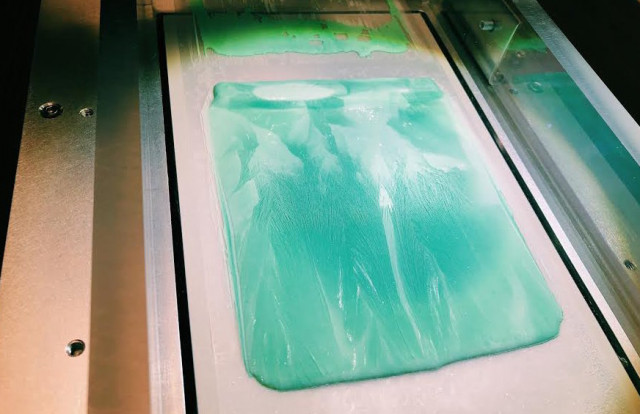
Fisker solid state electrode material – from @henrikfisker
As scientists and companies around the world pour years and millions of dollars into solid-state batteries, many disagree on how soon they could make it into cars on the road.
Now the Chinese Xinhua news agency reports that a startup company in China, Qing Tao (Kunshan) Energy Development Company has begun production of solid-state batteries in the Chinese city of Kunshan.
According to Xinhua, the company has set up a solid-state battery production line capable of producing 100 megawatt-hours worth of batteries for a year, which it expects to expand to 700 megawatt-hours by 2020.
DON'T MISS: Fisker gets Caterpillar investment for solid-state battery tech
The plant reportedly cost $144 million.
Solid-state batteries are expected to be the next major technological breakthrough for electric cars because they can be lighter, longer-lasting, and safer than today's batteries which use a flammable organic liquid lithium salt solution.
CHECK OUT: Dyson plans to build electric-car test track in Britain
It's not clear, given Qing Tao's modest production, whether its batteries are destined for electric cars or for consumer electronics such as laptops or cell phones.
Qing Tao claims its batteries have an energy density of 400 watt-hours per kilogram, about 30 to 40 percent higher than today's commercial automotive lithium-ion batteries.
READ THIS: VW confirms it’s planning for solid-state batteries by 2025
Other companies staking early claims to building solid-state batteries include Fisker Inc., which says it will have solid-state batteries in its first car by 2022 (a couple of years after it says the car will go on sale), and British vacuum-cleaner and electronics company Dyson, which is reportedly working on its own electric car.
Volkswagen also says it plans to have solid-state batteries in production for its cars, in relatively low numbers, around 2025.
Other battery makers such as Panasonic, the world's largest producer of lithium-ion batteries, say solid-state batteries won't make it onto the road until closer to 2030.